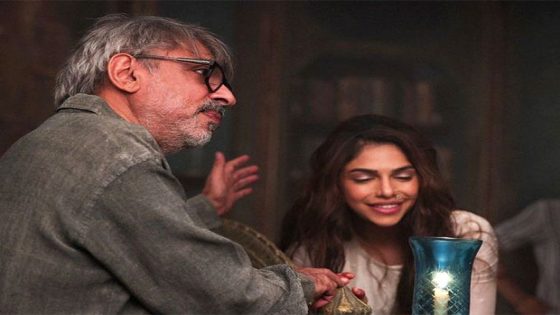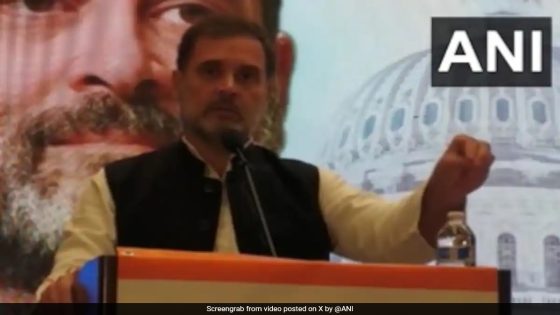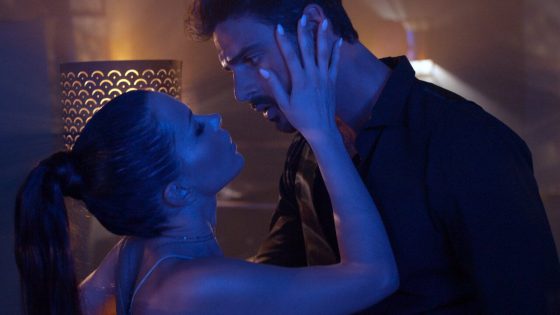Watch the first part Finding Yusuf on
The second part of the documentary premieres 2 April at 9:30pm on SBS and
In a narrow corridor between two tents, Australian mother Zahra Ahmad teaches her 12-year-old son Mohammad basic maths.
She shows him how to find common denominators, simplify, and answer what is left after a part is taken away from the whole.
“Not mummy’s best subject,” she says with a laugh. “But it’s okay. We’re going to get through it.”
Her two younger children, Omar, 10, and Ibrahim, five, are seated close by with their hands tucked into their pockets.
It’s late winter, and the camp they live in is sapped of colour, except for the kids’ blue plastic chairs, stark against the dust.
Studying outside is the only option; they’ve had no electricity for two months.
“I’m trying as hard as I can to make things normal for them,” Zahra says. “But how hard can you try in a place like this?”
Mohammad has never been to a proper school. Born in Australia, he was taken to Syria by his parents at the age of two and ended up living under the self-proclaimed Islamic State (IS) group.
Al-Roj camp holds nearly 3,000 people, mostly wives, children and other relatives of former IS fighters; 65 per cent of the camp’s population are children. Source: SBS / Colin Cosier/ Dateline
For the better part of the past five years, since the fall of the IS group caliphate, his family have been living in Roj, the smaller of two detention camps for families of suspected IS group fighters.
The northeastern part of Syria, where the camp sits, is de facto administered by the Autonomous Administration of North and East Syria (AANES) led by Syrian Kurds, which is not internationally recognised.
Of the camp’s 3,000-strong population, the UN estimates 65 per cent are children.
In October 2022, the government from Roj. Over a year later, the remaining families wonder when their turn will come.
Zahra and her three boys are among 34 Australians still held in Roj. But time is not on her side: as her sons Mohammad and Omar approach adolescence, there’s a risk they will be taken away from her.
Volatile region
Originally from the northern suburbs of Melbourne, the circumstances of how Zahra’s family came to be in Syria are contested.
Some male members of her family reportedly joined the IS group, but Zahra maintains the women had no choice but to follow.
“I didn’t make this bed,” she says.
“We are now forced to suffer for the decisions that other people – other male influencers – have made on our behalf, and now they’re all gone and we are left to suffer with our kids.”
When , after a lengthy final battle with the US-backed Syrian Democratic Forces (SDF) at Baghouz in Syria, women and children were separated from men and teenage boys.
Women and their dependents were sent to detention camps; men were sent to prisons.
Zahra was sent to a camp, along with her mother, sisters, nieces and sons, making them the largest Australian family held in northeastern Syria.
For each of them, the last five years have been marred with anxiety.
“Life in the camp is horrendous,” Zahra says. “It’s only getting worse every day.”
Aside from harsh living conditions in overcrowded camps that rely on international humanitarian aid, the security situation remains volatile.
Neighbouring Türkiye has ramped up air strikes on northeastern Syria, targeting Kurdish-led forces.
Türkiye says these forces support the Kurdistan Workers Party, or PKK, which has been fighting for Kurdish independence.
Türkiye’s NATO allies and Australia recognise the PKK as a terrorist organisation.
The SDF claims the strikes have hit crucial infrastructure.
“One of the last bombings was so close that the whole tent was shaking under us while we were sleeping,” Zahra says.
After defeating IS in 2019, the US-backed Syrian Democratic Forces (SDF) now effectively control northeastern Syria. However, the security situation in the region remains precarious as they face ongoing attacks from neighbouring Türkiye targeting Kurdish militants. Source: Getty / AFP
Risk of separation
Amid escalating violence in the region, Zahra’s family face their own critical juncture in their time in Roj.
Reports suggest teenage boys are forcibly separated from their mothers, ostensibly to quell the risk of radicalisation in the camp. In some cases, boys as young as 10 have been taken away, leaving both her eldest Mohammad and middle child Omar at risk.
“If they take them away from me, I might never see them again.”
“I can’t have that happen to my kids,” Zahra said. “They are innocent. They haven’t done anything wrong. I don’t believe they should be punished for something they don’t even have anything to do with.”
According to Human Rights Watch, armed guards transfer boys to “rehabilitation centres” or, in the case of older teens, adult prisons. Mothers are often not told for weeks or months where their sons are taken, if at all.
The AANES maintains it is beyond its means to improve the various detention centres.
“There is a real need for new places, bigger places, to be created, but the Administration does not have that ability to build and create these things,” says co-chair of the AANES’ Department of Foreign Relations, Badran Çiya Kurd.
Born in Australia, Mohammad was two years old when he was taken by his family to Syria. Living in a camp for families of IS fighters, he’s at risk of being separated from his mother and younger brothers as he approaches puberty. Source: SBS / Colin Cosier/ Dateline
Çiya Kurd also cites the supposed strengthening of the Islamic State group as a challenging factor for security in the region.
“We can’t pretend that it is like a normal region,” he says.
“That is why we have more security measures … to protect our people’s lives.”
Fionnuala Ní Aoláin was the UN special rapporteur on the promotion and protection of human rights and fundamental freedoms while countering terrorism from 2017-2023.
During her tenure, she reported on the severe undercount of people arbitrarily detained in northeastern Syria, and the conditions of their confinement, alleging overcrowding, exposure to tuberculosis and physical torture.
“I met with many boys and many children who had experienced torture; cruel, inhuman and degrading treatment,” she said.
One boy who became famous for his detention was Australian teenager Yusuf Zahab. Taken to Syria at the age of 12, he was separated from his mother and sister during the fall of Baghouz in 2019.
He was sent to an adult prison at 15, where he is held to this day without charge.
Yusuf says during his time in prison, he has been starved, beaten and tortured. The SDF denies these allegations.
Compounded by sparse communication with Yusuf’s family and Kurdish authorities, Ní Aoláin says his story is “emblematic of everything that’s wrong for children in northeast Syria”.
“These boys … have fundamentally been told that they’re worth nothing, that they are the ‘Cubs of the Caliphate,” she told SBS Dateline. “That [phrase] takes away a child’s dignity by saying, ‘Because you were born to this person, because you came here, you are nothing. You are of no value’.”
The vulnerability of boys in conflict is often overlooked, Ní Aoláin says, because of a generalised perception of young men as potential combatants.
“They’re not presumed to be subject to harm. They’re presumed to be able to withstand things that others cannot.”
At the camp, boys like Zahra’s son Mohammad are acutely aware of Yusuf’s story and what getting older means for their status in the camp.
“I’m a big boy,” the 12-year-old says. “I don’t want to get separated from my mum.”
Mohammad suffers from severe asthma and has a secondary condition that requires surgery.
Australian mother stuck in a camp in Syria, Zahra Ahmad, fears that the longer her family wait for repatriation, the higher the risk her sons could be separated from her. Source: SBS / Colin Cosier/ Dateline
This has only exacerbated Zahra’s fears. She says the anxiety is constant.
“Even when you’re sleeping, you have nightmares about it,” she says. “I wake up and I’m just making sure he’s still next to me, making sure they haven’t come in and snatched them away from me, making sure everything’s still okay, and I go back to sleep to have another nightmare.”
Daytime offers little relief.
“We try and get them to play outside, but it’s always really scary if they see the cars driving up or if they hear anything outside. They run straight inside.”
Repatriation
Ní Aoláin believes that as long as these children remain in northeast Syria, Australia violates international law and the UN Convention on the Rights of the Child.
“The basic rule of international law is each country is responsible for its own. You don’t shed your nationals like debris and have other countries be responsible for them,” she said.
Australia’s repatriation of its nationals has been a protracted process; one carried out in stages.
In 2019, eight Australian orphans were repatriated from Syria. In October 2022, four women and 13 children were also brought back.
Last year, Save The Children Australia brought a case to the Federal Court to compel the government to repatriate the remaining Australian women and children. They lost, but an appeal is expected to be heard in May.
The AANES have made it clear it would welcome further repatriations.
“The decision can only be made by those countries, it’s not up to us,” says Çiya Kurd.
“For all the countries that have citizens here, we say this to whoever wants to take their citizens, we are ready to assist them.”
For Zahra’s family, the Australian government’s decisions around who is eligible to return and when are puzzling and painful.
She says that after completing risk assessments by ASIO in late 2022, undergoing DNA testing and assembling their travel documents, the family was sure they were next on the list.
“The kids every day had their shoes ready on the door, had their clothes ready to get dressed to go, had their bags ready.”
While the first cohort were repatriated, Zahra and the remaining 33 Australians were left behind. They say they weren’t given a reason why.
“It feels terrible,” she says. “It feels mean.”
“The kids that have gone home, they’ve gone back to school, reintegrated back into society nicely,” Zahra says.
“I just want my child to have the same opportunity to be healed. Going to school, going to the park, going to the zoo, these beautiful things that they should be allowed to do.”
The issue of innocence
In Australia, the issue of repatriation has been blurred by concerns over terrorism offences and questions of radicalisation, at least in the court of public opinion.
Ní Aoláin says the question of innocence should be decided in a court of law.
“For Australian men or women who have committed crimes in northeast Syria, they should be prosecuted, because the victims of terrorism have a right to those prosecutions.
“But they’re never going to be prosecuted in northeast Syria.”
She asserts that many women like Zahra were groomed, trafficked or coerced, but maintains it is the children who are most vulnerable.
“No Australian child chose to go to Syria. No Australian child chose to be born in Syria. No child is responsible for the decisions of their parents.
“We have hundreds of these boys in northeast Syria who are deemed unworthy of protection and whom no one, particularly their governments, has the decency to step up and protect.”
Zahra understands the questions over the families’ innocence.
“I think I would have the same concern if I was back home,” she says. “But what I would like to say is don’t be so quick to judge. Try and look at it from our perspective. We are also mothers.”
SBS Dateline contacted the Australian departments of Home Affairs, Foreign Affairs and Trade, and the Prime Minister and Cabinet with questions regarding the repatriation of the remaining women and children in northeast Syria.
They didn’t respond to those questions.










